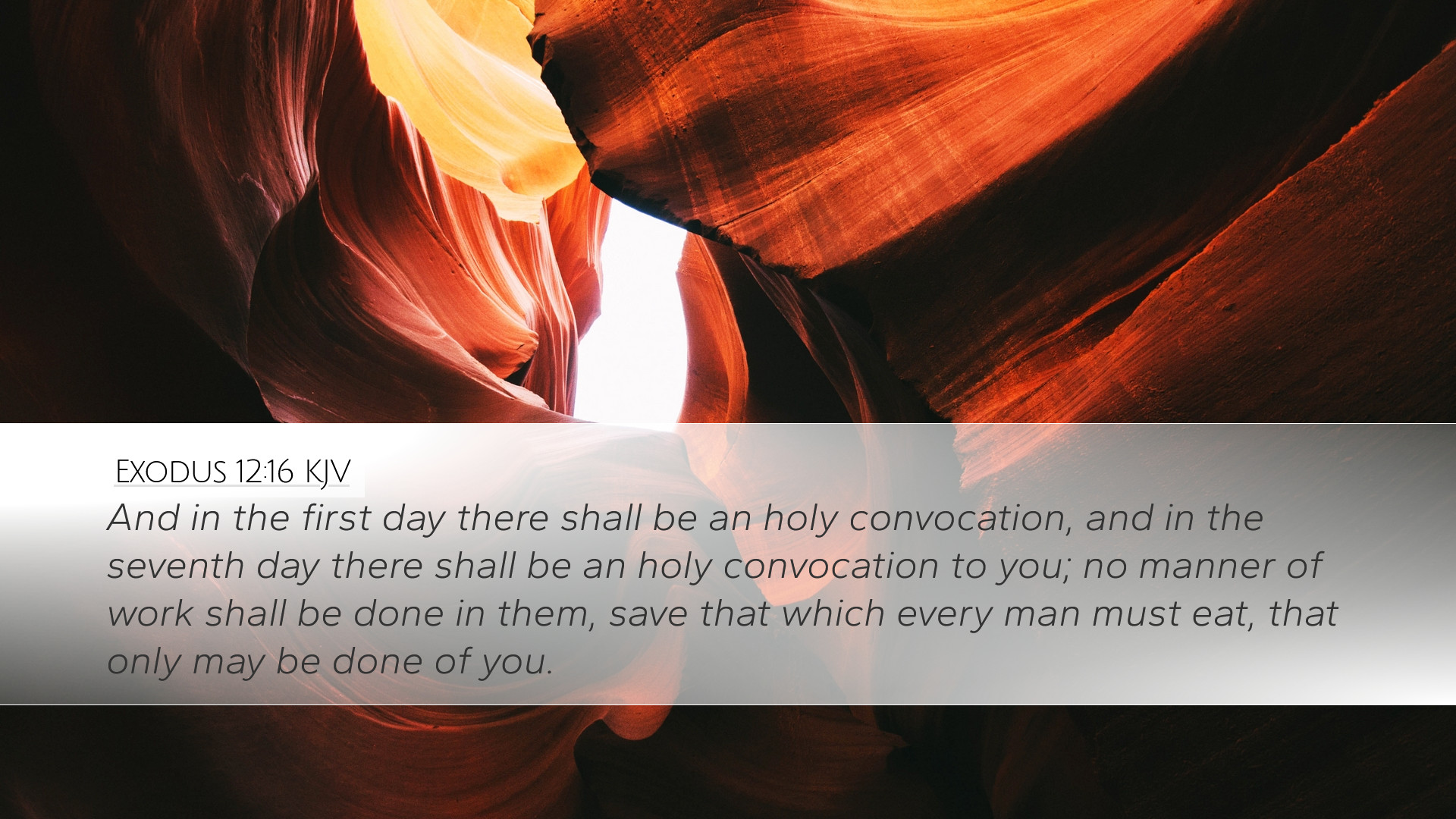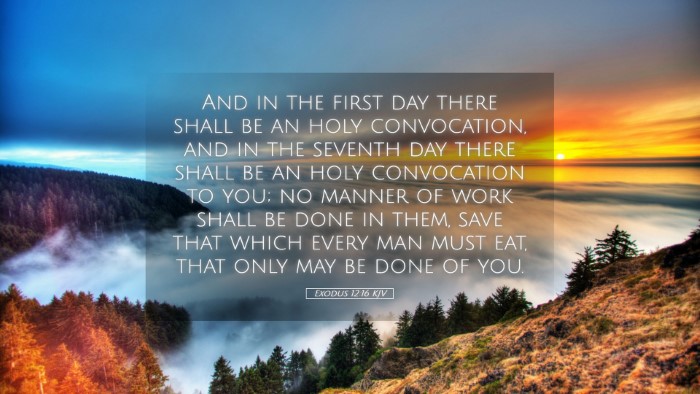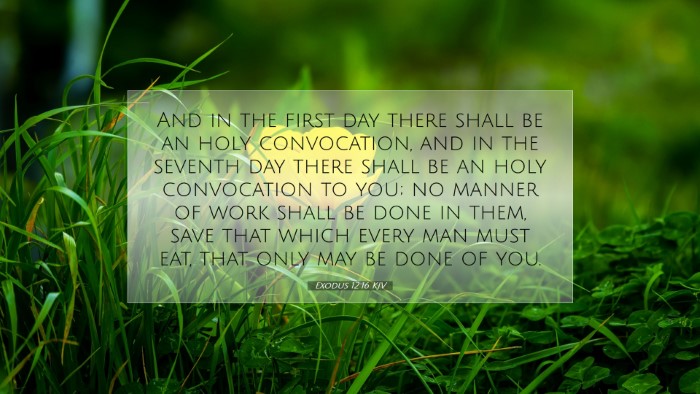Commentary on Exodus 12:16
Exodus 12:16: "On the first day you shall have a holy convocation, and on the seventh day there shall be a holy convocation for you. No work shall be done on those days, but what everyone needs to eat, that alone may be prepared by you."
Introduction
This verse from Exodus 12:16 is pivotal in understanding the institution of the Passover and the spiritual significance of the feast days commanded by God. It marks the transition in Israel’s calendar and religious observance, emphasizing both rest and holy gathering.
Contextual Background
The Exodus narrative highlights the liberation of the Israelites from slavery in Egypt. The institution of the Passover and the accompanying regulations serve not only a commemorative purpose but also establish a rhythm of worship and rest for God’s people.
Thematic Elements
- Holy Convocation: The phrase "holy convocation" signifies a gathering set apart for sacred purposes. It is an invitation to communal worship and reflection on God's redemption.
- Days of Rest: The command emphasizes the importance of rest, reminiscent of the Sabbath rest established in creation.
- Preparation of Food: The allowance of food preparation highlights God's concern for practical needs amidst spiritual observance.
Insights from Commentaries
Matthew Henry
Henry reflects on the dual nature of the command: it is a call to both solemnity and festivity. He observes that the Passover begins and concludes with a significant communal gathering. The stress on no work underscores the need for spiritual reflection and physical rest during these sacred times.
Albert Barnes
Barnes emphasizes the importance of organized worship in the life of the Israelites. He connects the holy convocations with the perpetual remembrance of God's deliverance, suggesting that these gatherings were meant to reinforce community identity and faith. He notes that while the days are marked as times of rest, the emphasis should not lead to neglect of familial and communal needs.
Adam Clarke
Clarke discusses the significance of the weeks of the Passover, illustrating the theological implications of the holy convocation. He notes that these days symbolize the separation of God's people from common activities, as they are engaged in divine remembrance and worship. Clarke also points out that the preparation for meals is an act of hospitality and care, reinforcing community bonds.
Applications for Today
- Worship and Community: Modern congregations can draw from this passage the importance of gathering together for worship, especially during significant religious observances.
- Sabbath Principle: The commandment to rest serves as a poignant reminder for today’s hurried society to carve out time for spiritual reflection and renewal.
- Balanced Living: The practical guidance on preparing food on holy days encourages believers to find balance between spiritual commitments and everyday responsibilities.
Conclusion
Exodus 12:16 is a concise yet profound command that not only ordains the observance of the Passover but encapsulates principles of community, worship, and divine rest. As scholars and theologians reflect on this verse, they are invited to explore its multifaceted applications both in ancient Israel and in contemporary faith practices.


